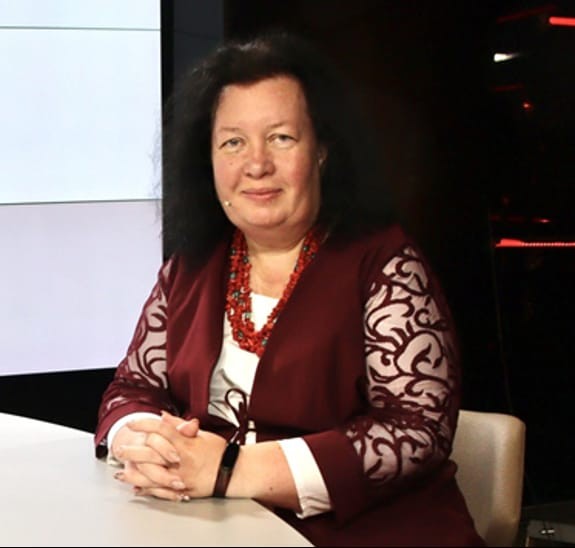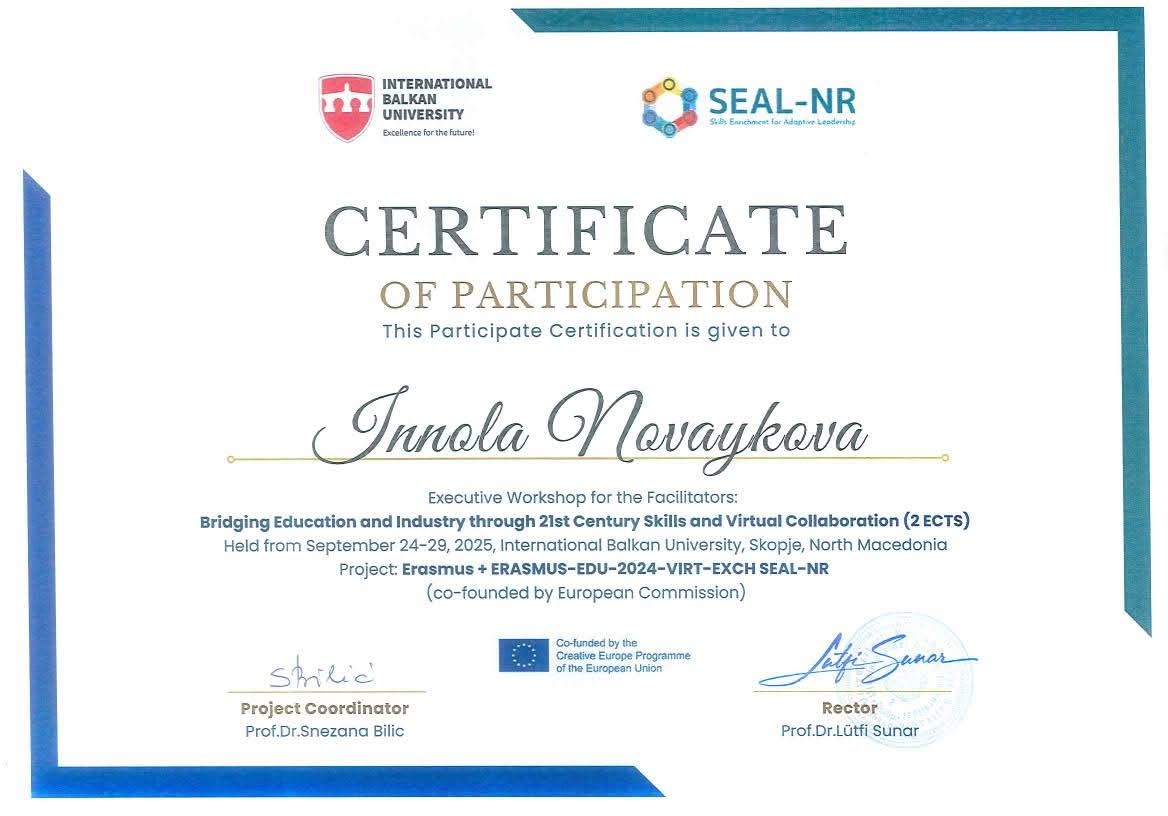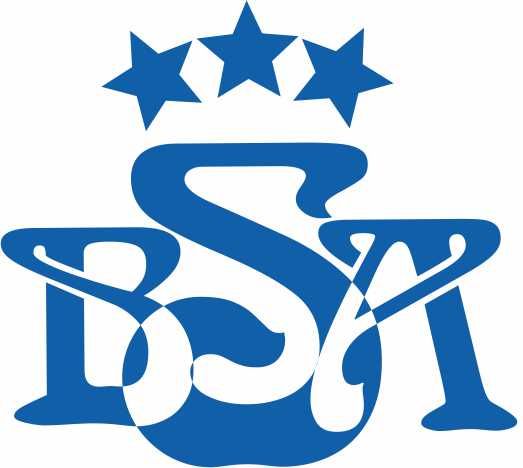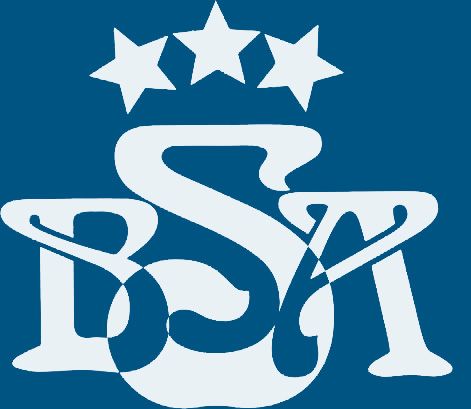Participation of representatives of the academic staff of the Baltic International Academy in the
Programme
Erasmus+ (ERASMUS+) Virtual exchanges in higher education and youth (ERASMUS-EDU-2024-VIRT-EXCH)
Scope:
VIRTUAL EXCHANGES IN HIGHER EDUCATION AND YOUTH
Virtual exchanges projects consist of online people-to-people activities that promote intercultural dialogue and soft skills development. They make it possible for every young person to access high-quality international and cross-cultural education without physical mobility. While virtual debating or training does not fully replace the benefits of physical mobility, participants in virtual exchanges ought to reap some of the benefits of international educational experiences. Digital platforms represent a valuable tool in partially answering the global constraints on mobility caused by the COVID-19 pandemic. Virtual exchanges also help spreading European values. Moreover, in some cases, virtual exchanges can give ideas and prepare the ground for future physical exchanges not funded under this action .
Virtual exchanges take place in small groups and are always moderated by a trained facilitator. They should be easily integrated into youth (non-formal education) projects or higher education courses. Virtual exchanges can draw participants from both sectors, even if, depending on specific projects, they could involve participants from either only one of them or from both. All projects under this call will involve organisations and participants coming from both EU Member States and third countries associated to the Programme, and third countries not associated to the Programme in eligible regions.
OBJECTIVES OF THE ACTION
The action will aim to:
- Encourage intercultural dialogue with third countries not associated to the Programme and increase tolerance through online people-to-people interactions, building on digital, youth-friendly technologies;
- Promote various types of virtual exchanges as a complement to Erasmus+ physical mobility, allowing more young people to benefit from intercultural and international experience;
- Enhance critical thinking and media literacy, particularly in the use of internet and social media, such as to counter discrimination, indoctrination, polarization and violent radicalisation;
- Foster the digital and soft skills development of students, young people and youth workers, including the practice of foreign languages and teamwork, notably to enhance employability;
- Promote citizenship and the common values of freedom, tolerance and non-discrimination through education;
- Strengthen the youth dimension in the relations of the EU with third countries.
THEMATIC AREAS / SPECIFIC OBJECTIVES
The Virtual Exchanges should be organised in one or more of the following thematic areas, which correspond to the priorities of the Erasmus+ Programme:
- Inclusion and diversity;
- Digital transformation;
- Environment and fight against climate change;
- Participation in democratic life, common values and civic engagement.
Within this broad framework, since Virtual Exchanges are a bottom-up initiative, participating organisations are free to choose the topics on which they will focus, but proposals must demonstrate their expected impact in relation to one or more of the objectives mentioned above (see also ‘Expected impact’ section below). Gender aspects should be taken into account as needed, depending on the projects’ scope and themes (e.g. by introducing gender sensitivity aspects in the trainings). Special attention needs to be given to the inclusion of socially and economically vulnerable people and persons unable to apply for physical mobility.
ACTIVITIES
Projects will be funded based on work plans that integrate online cooperation activities, including:
- Online-facilitated discussions between young people of youth organisations based in different countries, as part of youth projects. They could include role playing simulations;
- Training for youth workers willing to develop a virtual exchange project with colleagues from other countries;
- Online facilitated discussions between students of Higher Education institutions based in different countries, as part of higher education degrees;
- Training for university professors/staff willing to develop a virtual exchange project with colleagues from other countries;
- Interactive open online courses including traditional course materials such as filmed lectures, readings, and problem sets (like the well-known MOOCs, Massive Open Online Courses, but putting an emphasis on interactive user forums in small groups to support community interactions among students, professors, teaching assistants, young people and youth workers).
SETTING UP A PROJECT
All virtual exchange projects need to be:
- Moderated by trained facilitators;
- Secure and protective from the perspective of participants and hosts, in full compliance of the EU data protection rules;
- Politically sound and culturally relevant: virtual exchange activities must be firmly embedded in the youth and higher education sectors and be up to date with young people’s online and offline cultures in the participating countries;
- Open and accessible at user experience and interaction level. Registration and interactions with peers, facilitators, administrators, and other stakeholders should be straightforward and easy;
- Mainly synchronously, with possible asynchronous components (e.g. readings, videos);
- Finally, they must foresee a method of recognition of participation and learning outcomes for young people at the end of the exchange.
Participant organisations must arrange virtual exchanges for people in the 13-30 age range. If a project involves people under 18, participating organisations are required to obtain prior authorisation for participation from their parents or those acting on their behalf. Individual participants must be based in the countries of the organisations participating in the project.
In order to carry out their activities, projects should rely, as far as possible, on existing tools and platforms.
Further information can be found on the dedicated page of the Programme Guide (erasmus-plus.ec.europa.eu/erasmus-programme-guide), please check the latest version for 2024.
Vladislav Volkov,
Dr.sc.soc., asoc. professor,
Rector of the Baltic International Academy
Section 3 - EU countries' experience in social adaptation of migrants and displaced persons: The case of Latvia
Asylum statistics from 2022 to 2024 show that Ukrainian citizens have become the largest group of recipients of international protection in Latvia today. As the authors of the study “The experience of Latvian municipalities in receiving Ukrainian civilians: from crisis to long-term solutions” point out, over the past 25 years (since 1998), a total of 6,567 asylum seekers have been registered in Latvia, of which 713 have been granted refugee status and 749 have been granted alternative status. By December 2024, 48,093 people with active temporary protection status were registered in the Register of Natural Persons (Pelse, Stafecka, Bērziņa 2025, p. 8).
The Baltic International Academy (BIA) (Riga, Latvia) focuses its attention on the problem of social adaptation of migrants and displaced persons on Ukrainian refugees. In general, the founders of BIA as a private higher education institution in Latvia, the management and the teaching staff act in accordance with the main directions of assistance that have been developed in the Republic of Latvia (No Ukrainas uz Latviju … 2025). For Latvia, the number of Ukrainians displaced to the territory of this state is quite large. At the beginning of 2023, the number of Ukrainian refugees was 20,727 (Latvijas iedzīvotāju sadalījums … 2023). By 2025, this number had decreased slightly by about 2 thousand people (Atsevišķu tautību iedzīvotāju skaits ... 2025). But if in support of Ukrainians considerable attention is paid to financial and material subsidies (in providing accommodation, use of transport, health care, provision of social assistance, etc.), then, taking into account the exclusively private nature of the formation of the BIA budget and the complete absence of state resources, then support of Ukrainian refugees by the Academy mainly actualizes humanitarian and social support resources.
It is worth noting that BIA, as an educational institution, plays an important role, along with other higher education institutions in Latvia, in the employment of teachers and researchers, who still maintain important professional and scientific contacts with Ukrainian universities and research centres. Thus, the published statistics for the beginning of 2024 indicate that out of 8408 Ukrainian refugees officially employed in Latvia, the group of scientific workers, together with financial, insurance, administrative and real estate activities, constitutes 11.1% of all Ukrainian refugee workers. As of January 2024, the number of Ukrainian refugees working in the education sector in Latvia is 46 (Meilija, Pelse, Kažoka, Bērziņa, Stafecka, Soldatova 2024, р. 20, 21). At the same time, official data says nothing about the number of Ukrainian refugees in Latvia employed in universities and research centers, and, accordingly, the growth of these highly professional specialists. The conducted sociological study “Ukrainian refugees in Latvia: available data, experience and public attitudes” of the problems and challenges faced by Ukrainian refugees in Latvia also did not record the special needs of this group of people who were employed in teaching and scientific institutions. The studies mainly recorded the opinions of Ukrainian refugees who were faced with a difficult financial situation, with limited communication (Meilija, Pelse, Kažoka, Bērziņa, Stafecka, Soldatova 2024, р. 45 – 55; Soldatova, Pelse, Kažoka 2025, p. 4 – 12).
The Baltic International Academy pays great attention to the adaptation of migrants and displaced persons in the educational and scientific process. Since March 2022, BIA has been providing support to students, colleagues and partners from Ukraine, both those who are currently in Latvia and those who are in Ukraine. Since then, BIA has been providing assistance in preparing official documents or invitations, as well as contacting the consular assistance point in Lvov. BIA has been regularly informing on its website about the granting of refugee status in English, Ukrainian and Russian. Since then, BIA has been organizing psychological assistance to Ukrainian refugees, which is carried out by the Center for Psychological Counseling (headed by Associate Professor Vera Krieviņa).
BIA began to advise Ukrainian citizens on how to apply for a Latvian scholarship. And to support young researchers and scientists from Ukraine, BIA allocates 6 scholarships for doctoral studies in legal and economic specialties. (Support for students … 2022).
Since 2022, BIA has been implementing scholarships for Ukrainian civilians. These Latvian scholarships are aimed at ensuring the right of Ukrainian citizens to continue their studies at higher education institutions in Latvia, as well as scientific activities interrupted in Ukraine. The Latvian state provides scholarships for studies and research. The study scholarship is 140 euros per month. The following can apply for the scholarships:
- Ukrainian citizens who begin their first year of studies at a Latvian higher education institution in autumn 2022 and are not eligible for Erasmus+ support.
- Ukrainian research (scientific) personnel who carried out scientific or academic work in Ukraine before the war and whose scientific activity profile is too different to be able to participate in State research program or any other projects implemented by the scientific institution. (The deadline for applications … 2022)
A large proportion of BIA students are migrants from other countries. BIA Admissions, Visa and International Relations Departments, teachers, administrators and members of the Student Parliament participate in the selection and admission of international students, the processing of visas and temporary residence permits, lectures for English-language programs, as well as all those who work with international students in the classroom on a daily basis and provide them with assistance and support outside the classroom. These activities comply with the content of the “Agreement on Good Practice in Attracting International Students and Providing Training”, which was signed by three ministries of Latvia - the Ministry of Education and Science, the Ministry of Foreign Affairs and the Ministry of the Interior, as well as 15 other Latvian higher education institutions, including BIA (Congratulations on signing the agreement … 2022).
BIA academic staff takes part in international scientific conferences devoted to the problem of migration, including forced migration, as well as displaced persons, whose appearance in Latvia is caused by geopolitical and military reasons. For example, the participation of docent Irina Gaft associate professor Tatyana Yurkevich in "Russo-Ukrainian War 2022-2023. Origins, causes, course and effects" (Józef Goluchowski University of Applied Sciences was held with great success in Ostrowiec Świętokrzyski, Poland, 2023, June 15 – 16. (BIA researchers participated … 2023).
Since 2022, BIA has had Innola Novikova, a professor at the Kyiv Agrarian University and a doctor of economic sciences, as a visiting teacher. Given her high professionalism, scientific competence and communication skills, she was included in the academic staff of BIA. From October 2022 to June 2025, Professor Novikova taught the following courses for undergraduates:
- Banks and Monetary Systems,
- Company's commercial production activity strategy,
- Financial Instruments Market,
- Financial market,
- Innovations and novelty,
- International business,
- Investment management,
- Management,
- Price Strategies,
- Strategic Management.
For doctoral students (Phd):
- Methodology and Philosophy of Scientific Condition,
- National Economy and Problems of Globalization.
For the period 2022-2025, Professor Novikova supervised two postgraduate students - 1 first-year postgraduate student (2024-2025) and one second-year postgraduate student (from 2023 to 2025). In 2023, Novikova won a grant for research on the topic - Export of education as a vector for the development of higher education in Ukraine: studying the experience of Latvian educational institutions. I. Novikova is a member of the BIA Promotion Council for the defense of dissertations for the degree of Doctor of Economics (2023 – 2024).
At BIA, student Anatoliy Lytvynenko, a native of Lviv (Ukraine), completed his doctoral studies in the specialty of Legal Sciences and defended his dissertation “Data confidentiality in healthcare in European national laws” for the title of Doctor of Law in 2023 at the Council for the Protection of Promotional Works in Law of the Baltic International Academy (supervisor Doctor of Law, Associate Professor of BIA Tatyana Yurkevich) (BSA zinātniskā darbība … 2025). The topic of his scientific research is promising in the field of law. To date, there are eight scientific articles that Lytvynenko has published in Scopus-indexed publications as an author affiliated with the Baltic International Academy (Lytvynenko, Anatoliy A. 2025). This became an important reason for involving Lytvynenko in active cooperation with the Baltic International Academy after successfully defending his dissertation. He began to read various courses for students of different faculties of BIA, for example, “Methodology and Methods of Social Research”, “International Relations Theory”. In 2025, the BIA leadership decided to recommend that the Senate elect A. Lytvynenko as a lecturer at the Baltic International Academy on a competitive basis for a term of 6 years. A. Litvinenko passed the Latvian language proficiency exam (level B1), which, according to Latvian law, allows him to be elected as a full-time teacher at higher education institutions, provided that during the term of election he successfully passes the Latvian language exam for category B2.
The above facts about the involvement of the Baltic International Academy in solving the humanitarian and social challenges of Ukrainian displaced persons indicate good indicators of the integration of teachers from Ukraine into the academic and scientific environment of the Baltic International Academy. Thus, the Baltic International Academy implements one of the most successful practices of integration of Ukrainian refugees in Latvia, while in some local governments there is a "desire to achieve the goal of creating a national resource and activating it, to increase the level of education, and to achieve the goal of segregation without integration" (Pelse, Stafecka, Bērziņa 2025, p. 49).
References
Atsevišķu tautību iedzīvotāju skaits – Tautība un Laika periods [Population of Certain Nationalities – Nationality and Time Period]. (2025) https://data.stat.gov.lv/pxweb/lv/ OSP_PUB/START__POP__IR__IRE/IRE020/table/tableViewLayout1/ (10.6.2025).
BIA researchers participated in the International Expert Conference "Russo-Ukrainian War 2022-2023. Origins, causes, course and effects". https://bsa.edu.lv/ index.php/en/about-us/news/995-bia-researchers-participated-in-the-international-expert-conference-russo-ukrainian-war-2022-2023-origins-causes-course-and-effects.html (20.6.2023).
BSA zinātniskā darbība 2022.-2024. studiju gados [BIA scientific activities in the 2022-2024 academic years]. (2025) https://www.bsa.edu.lv/docs/science/ atskaite202224.pdf (10.1.2025).
Congratulations on signing the agreement and receiving the certificate of good practice in attracting and providing study for foreign students! (2022) https://bsa.edu.lv/index.php/en/about-us/news/610-congratulations-on-signing-the-agreement-and-receiving-the-certificate-of-good-practice-in-attracting-and-providing-study-for-foreign-students.html (6.10.2022).
Latvijas iedzīvotāju sadalījums pēc nacionālā sastāva un valstiskās piederības [Distribution of the population of Latvia by ethnic composition and state affiliation] (2023) https://www.pmlp.gov.lv/lv/media/9756/download (1.1.2023).
Lytvynenko, Anatoliy A. (2025) https://www-scopus-com.datubazes.lanet.lv /authid/detail.uri?authorId=57410452700 (10.6.2025).
Meilija D., Pelse D., Kažoka I., Bērziņa L., Stafecka L., Soldatova N. (2024)
Ukrainas bēgļi Latvijā: pieejamie dati, pieredze un sabiedrības attieksme [Ukrainian refugees in Latvia: available data, experience and public attitudes]. Rīga: Providus.
No Ukrainas uz Latviju. Palīdzība Ukrainas bēgļiem Latvijā [From Ukraine to Latvia. Help for Ukrainian refugees in Latvia] (2025) https://www.ukraine-latvia.com/ lv#arrival (10.6.2025).
Pelse D., Stafecka L., Bērziņa L. (2025) Latvijas pašvaldību pieredze Ukrainas civiliedzīvotāju uzņemšanā: no krīzes līdz ilgtermiņa risinājumiem [The experience of Latvian municipalities in receiving Ukrainian civilians: from crisis to long-term solutions]. Rīga: Providus. https://providus.lv/wp-content/uploads/2025/06/Pasvaldibu_kapacitate_ petijums. pdf
Soldatova N., Pelse D., Kažoka I. (2025) Ukrainas bēgļu veidoto NVO fenomens Latvijā: izaugsme, izaicinājumi un ilgtspēja [The phenomenon of NGOs formed by Ukrainian refugees in Latvia: growth, challenges and sustainability]. Rīga: Providus. https://providus.lv/petijumi/petijums-ukrainas-beglu-veidoto-nvo-fenomens-latvija-izaugsme-izaicinajumi-un-ilgtspeja/
Support for students, colleagues and partners from Ukraine, both those who are now in Latvia and those who are in Ukraine at this difficult time. (2022) https://bsa.edu.lv/index. php/en/about-us/news/597-support-for-students-colleagues-and-partners-from-ukraine-both-those-who-are-now-in-latvia-and-those-who-are-in-ukraine-at-this-difficult-time.html (3.3.2022).
The deadline for applications for Latvian scholarships for Ukrainian civilians has been extended. (2022) https://bsa.edu.lv/index.php/en/about-us/news/598-the-deadline-for-applications-for-latvian-scholarships-for-ukrainian-civilians-has-been-extended.html (8.9.2022).

SEAL-NR ONLINE Meeting 9
2nd of september 2025
time: 12:00
Location: Online
Agenda
1.Briefing of the prepared Reports and their publishing on the project website (only Feedback report is uploaded – correction of the technicalities)
2. Structure of the Agenda for the 2nd workshop - Executive Workshop for Facilitators: Bridging Education and Industry through 21st Century Skills and Virtual Collaboration.
3. Continuous Reporting – what’s next? Continuous reporting_SEAL-NR
4. Quality Report and remarks
5. AOB
Participation in the meeting with Professor, Doctor of Economics Innola Novikova






